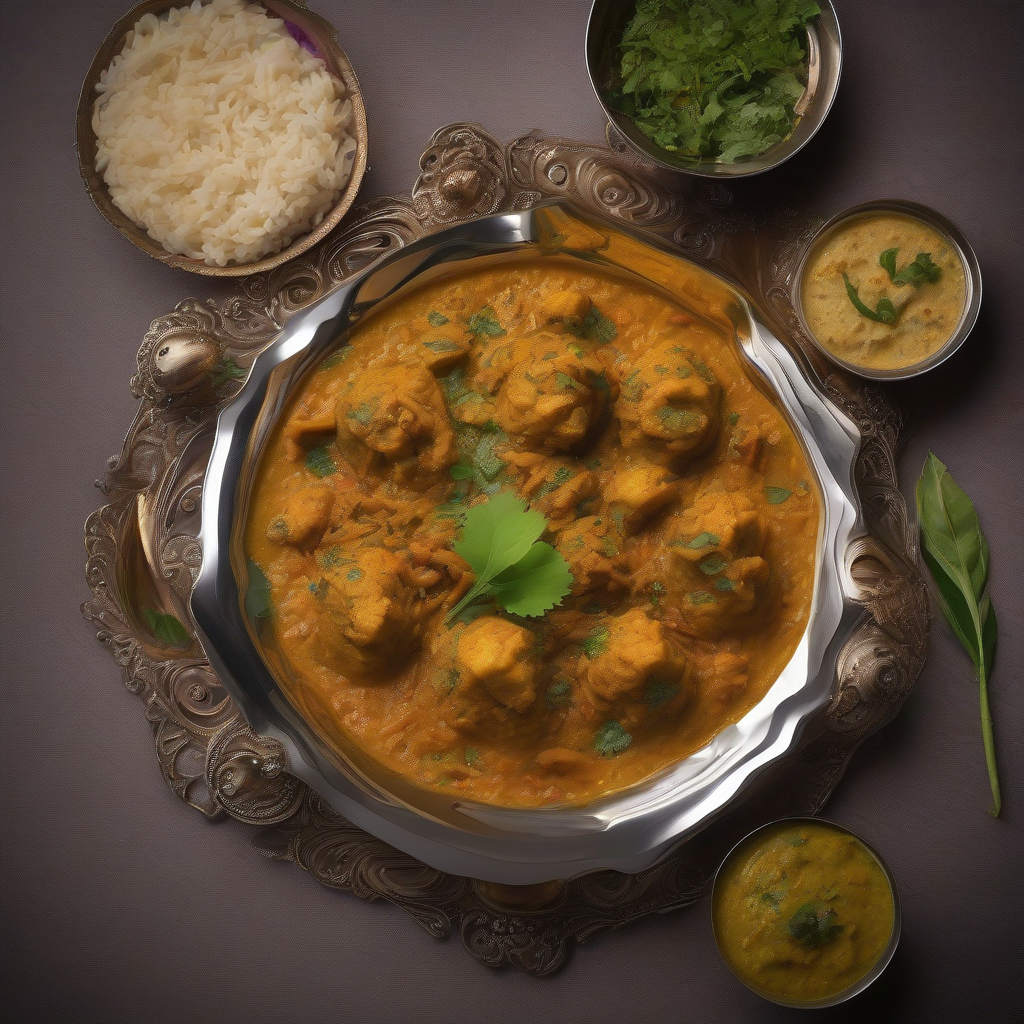Jadoh Jadoo: A Khasi Culinary Delight!
Namaste and Khublei! My dear food-loving friends! Chef Curry Do’pyaza here, ready to whisk you away on another delicious adventure. Today, we’re journeying to the beautiful hills of Meghalaya, the “abode of the clouds,” to explore a truly unique and flavorful dish: Jadoh!
Jadoh isn’t just food; it’s a cultural experience. Imagine vibrant celebrations like Behdienkhlam and Wangala, where the air is filled with music, laughter, and the tempting aroma of Jadoh simmering in earthen pots. It’s a dish that brings families together, especially during important festivals and special occasions. While Jadoh is enjoyed throughout the year, it holds a special place during harvest festivals, symbolising abundance and gratitude.
A Bite of History
Jadoh, meaning “rice with meat” in the Khasi language, is a traditional dish of the Khasi tribe of Meghalaya. It’s believed to have originated centuries ago, passed down through generations. The recipe is a closely guarded secret within families, with each household adding their own special touch. This dish is a testament to the ingenuity and resourcefulness of the Khasi people, using locally sourced ingredients to create a truly unforgettable culinary masterpiece.
Let’s Get Cooking!
Alright, enough chit-chat! Let’s dive into the recipe and bring the magic of Meghalaya to your kitchen.
Preparation Time: 20 minutes
Cooking Time: 45 minutes
Ingredients:
- 500g Pork, cut into small, juicy cubes
- 2 cups Rice (preferably short-grain rice), washed thoroughly
- 2 large Onions (Pyaaz), finely chopped
- 2-inch piece of Ginger (Adrak), grated
- 10-12 cloves of Garlic (Lahsun), minced
- 2-3 Green Chillies (Hari Mirch), slit lengthwise (adjust to your spice level!)
- 1 teaspoon Turmeric Powder (Haldi)
- 2 tablespoons Black Sesame Seeds (Kaale Til)
- 2 tablespoons Cooking Oil (Tel) – Mustard oil adds an authentic flavour
- Salt (Namak) to taste
- 4 cups Water
Instructions:
- The Base: In a large, heavy-bottomed pot or handi, heat the oil over medium heat. Add the chopped onions and sauté until they turn a beautiful golden brown. This step is crucial for that rich, deep flavour!
- Aromatic Infusion: Add the grated ginger, minced garlic, and slit green chillies. Sauté for another minute until the raw smell disappears and the kitchen fills with a delightful aroma.
- Meat Matters: Add the pork cubes to the pot and sauté until they are nicely browned on all sides. This searing process locks in the juices and adds a lovely depth of flavour.
- Spice Symphony: Stir in the turmeric powder and black sesame seeds. Cook for another minute, allowing the spices to release their fragrant oils.
- Rice Integration: Add the washed rice to the pot and mix well, ensuring that the rice is coated with the spice mixture and the pork.
- Water Works: Pour in the water and add salt to taste. Bring the mixture to a rolling boil.
- Simmering Success: Once boiling, reduce the heat to low, cover the pot tightly, and let it simmer for about 30-40 minutes, or until the rice is cooked through and the water is absorbed. Do not lift the lid during this time! Patience is key, my friends.
- Fluff and Serve: Once cooked, gently fluff the rice with a fork. Be careful not to mash the rice.
Tips for Best Results:
- Pork Perfection: Use pork with a good amount of fat for a richer, more flavourful Jadoh.
- Rice Right: Short-grain rice is ideal for Jadoh as it absorbs the flavours beautifully.
- Spice it Up: Adjust the amount of green chillies to your liking. Remember, you can always add more, but you can’t take it away!
- Black Sesame Secret: Don’t skip the black sesame seeds! They add a unique nutty flavour and a beautiful visual appeal.
Cooking Variations:
- Pressure Cooker: For a quicker version, cook the Jadoh in a pressure cooker for 3-4 whistles on medium heat.
- Slow Cooker/Crockpot: A slow cooker is perfect for a hands-off approach. Cook on low for 6-8 hours.
- Induction Stove: Follow the same instructions as the gas stove, adjusting the heat settings accordingly.
Nutritional Information (approximate, per serving):
- Calories: 450-550
- Protein: 25-30g
- Carbohydrates: 50-60g
- Fat: 20-25g
Serving Suggestions:
Jadoh is traditionally served hot, often with a side of Tungrymbai (fermented soybean paste) or a simple salad. It’s a complete meal in itself, but feel free to experiment with different accompaniments.
Your Turn to Cook!
So there you have it! My version of Jadoh, a taste of Meghalaya right in your kitchen. I urge you, my dear readers, to try this recipe at home. Experience the unique flavours, the rich history, and the warmth of this incredible dish. Cook it for your family, share it with your friends, and let them experience the magic of Jadoh.
Happy cooking, and remember, food is love!
